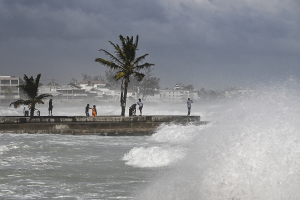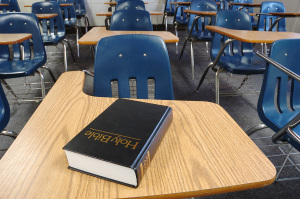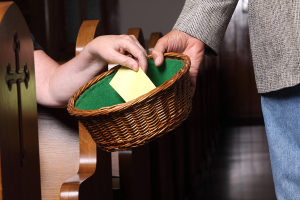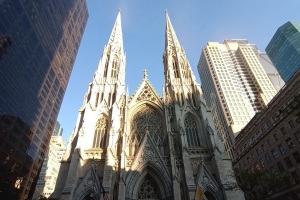Anglican priest warns ‘skies are darkening for religious freedom in Hong Kong’
Pres. Xi declares his political regime in HK has 'widespread approval' worldwide at handover anniversary ceremony
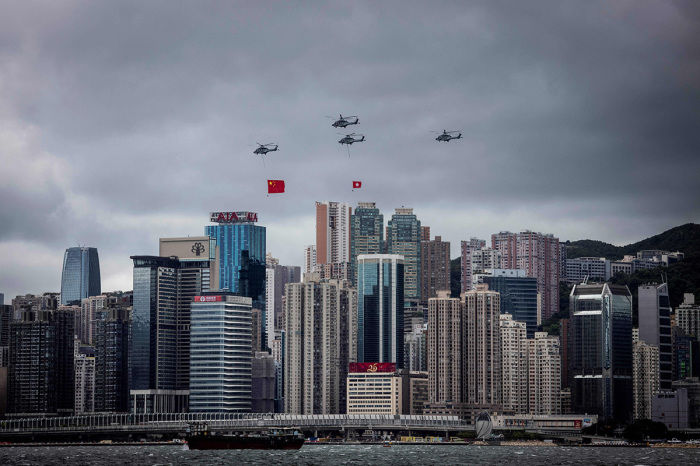
Religious freedom in Hong Kong is facing dangerous threats from the Chinese Communist Party, the Rev. Jonathan Aitken warned as Chinese President Xi Jinping marked the 25th anniversary of the city's handover from Britain to China.
“The skies are darkening for religious freedom in Hong Kong,” said Aitken, an Anglican priest and former cabinet minister and member of Parliament, during a speech at the National Club in London Wednesday, UCA News reported.
Aitken, 79, said “there are increasingly ominous signs” that religious freedom in Hong Kong is “next on the hit list by the destructive forces” of Xi's regime.
Hong Kong’s National Security Law, which was imposed by the communist regime two years ago, can leave fundamental freedoms “almost completely dismantled,” Aitken said.
The law has four categories of crimes: succession, subversion of state power, local terrorist activities and collaborating with foreign or external foreign forces to endanger national security.
“The law also positions Beijing as over the Hong Kong judicial system in cases deemed related to national security,” the U.S.-based group China Aid reported earlier. “This means that the judges in these cases must be Beijing-approved. Hong Kong residents can now also be taken to China, where they will face a courtroom with allegiance to the government.”
The rule of law, Aitken said, “has been undermined and any meaningful autonomy has been eroded.” Many former lawmakers are in prison and Beijing has “brutally curtailed” press freedom, academic freedom and freedom of expression, he added.
In 1997, China had agreed to a “one country, two systems” arrangement to allow certain freedoms for Hong Kong when it received the city back from British control. Critics contend the security law undercuts the promised autonomy.
“Today, a quarter of a century on from the handover, the whole world came to see that the Chinese communist regime has systematically broken those promises and violated the treaty,” he added.
President Xi said Friday that the city's political system as it now exists "must be adhered to over the long run," signaling that China plans to preserve the political model, according to the BBC, which added that the audience comprised of mostly pro-Beijing elite.
"'One country two systems' has been tested and proved time and again, and there is no reason to change such a good system," he said, adding that the system had the "unanimous endorsement" of residents and "widespread approval" by world leaders. Xi further claimed that Hong Kong's "true democracy began" when mainland China regained control.
Xi also defended the policy of only allowing "patriots" to run for office in Hong Kong, saying it was "essential for safeguarding the long-term stability and security of Hong Kong."
"No people in any country or region in the world would ever allow political power to fall into the hands of forces or individuals who do not love, or would even sell out or betray, their own country," he said.
Describing Xi as “ideologically a Marxist Nationalist and politically a brutal control freak,” Aitken said his regime is particularly hostile to faith groups.
The Chinese communist government is committing genocide against the Uyghurs (a Muslim ethnic minority) of approximately 12 million people heavily concentrated in the Western province of Xinjiang, Dr. Richard Land, president emeritus and an adjunct professor of theology & ethics at Southern Evangelical Seminary, wrote in a recent column for The Christian Post.
“It’s been estimated that over 1 million residents of China’s Xinjiang Uyghur Autonomous Region have been detained in internment camps for the alleged purpose of ‘re-education’ and ‘de-radicalization,” wrote Land, who has also served as an executive editor and columnist for The Christian Post since 2011. “Those who have fled the region have spoken of the horrors of forced abortions and torture. There is no doubt that the impetus for this crime against humanity started at the very top of the CCP food chain.”
China has also often been accused of rights abuses against other religious minorities including Christians, Tibetan Buddhists and Falun Gong practitioners.
Open Doors USA, which covers persecution in over 60 countries, estimates that China has more than 97 million Christians, many of whom worship in unregistered or so-called “illegal” underground churches.
The five state-sanctioned religious groups in China are the Buddhist Association of China, the Chinese Taoist Association, the Islamic Association of China, the Protestant Three-Self Patriotic Movement and the Chinese Patriotic Catholic Association.
Even the organizations within the five authorized religions are subject to surveillance and limitations.
Internet censorship targeting Christians in China, including government-sanctioned Christian groups, is severe.
In April, a well-known Christian website disappeared after serving believers for about 21 years.
In March, it was reported that Chinese authorities had launched a mass training program for more than 100 “religious content reviewers” to remove non-government religious content from the internet.
This “accreditation of over one hundred online religious activity ‘auditors’ will only continue the crackdown of online religious content and put more Chinese Christians in danger,” warned the U.S.-based persecution watchdog International Christian Concern at the time.
China has been labeled for years by the U.S. State Department as a “country of particular concern” for egregious religious freedom violations.
















